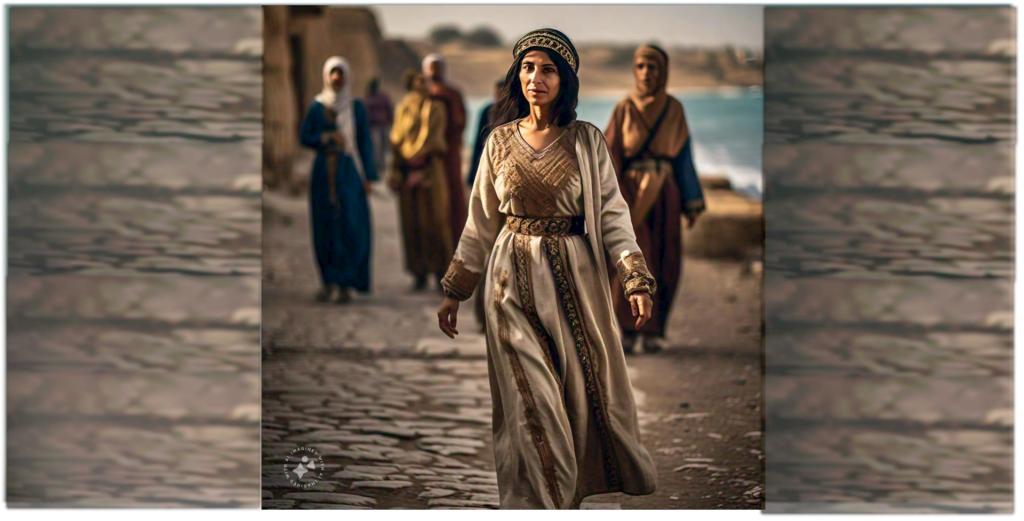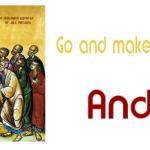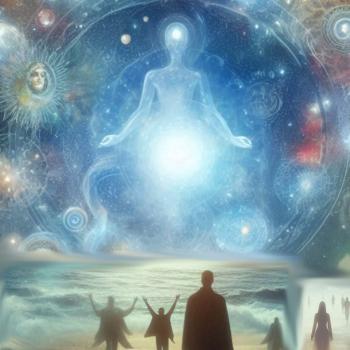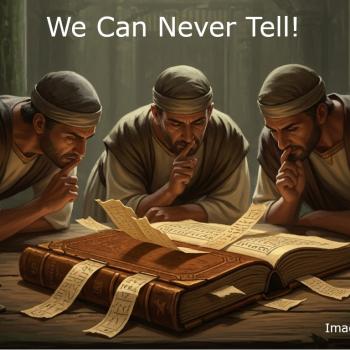Chapter 5: Sacrifice

They meandered through the bustling town of Sidon in peace. Judith was still stunned to think she had encountered a god and lived, so she had traveled along in silence. On the outskirts of town, Judith’s gaze moved to the Mediterranean, its shimmering waters sparkling in the afternoon sun lifted her spirits some.
She felt humbled that any god would stop and talk to people, let alone her. She was not deserving. With minimal religious inclination, she was definitely not a leader worthy of instruction.
She regretted much of what she had done in her fifty years and it sometimes hung like a black cloud over her. Why would any god talk to me? Surely this must be a god worth following. Yet he was not like any god she had heard of. And the Romans had killed him. Jesus was an endless puzzle, just as the Jews said. Was he a prophet? A god? A man?
The road took a turn down the hillside and then ran straight alongside the hill. Grass and cedar trees swayed gracefully in the breeze off the Mediterranean. Simon abruptly veered off the road on a path toward a dwelling just up the hill from them.
They first arrived at a veranda which jutted on the ground from the dwelling toward the sea. The veranda had a beautiful view of the hillside and Mediterranean. It was adorned with small shrubs that grew well in the rocky soil, creating a beautiful landscape. The air was filled with the scent of blooming flowers, and the gentle lapping of waves provided a soothing soundtrack. Inside the veranda were stone seats and a stone fire pit.
In the shaded corner was a mound of cloth. Judith flinched when it moved.
“Paul?” Simon called to the pile of cloth.
A muffled response came from the pile of cloth. “In name and deed,” Paul replied. “And some of those deeds haunt me. The peace of Jesus be with you, and it’s the only thing that brings me peace.” He shook off the cloth from over him and peeked his head out.
He removed a sewing hook from between his teeth. “It may not be obvious yet, but I’m making a tent. People wonder what magic is happening when a cloth pile moves, but there is no connection to our belief in God and nothing mystical. I support myself through my trade, as do we all, so as not to be a burden to others.” [Acts 18:1-4]
“We know that,” Jacob said as he went to Paul. He gave Paul a holy kiss and said, “The peace of Jesus be with you.”
Paul looked around, nodded to each, then spotted Judith. “You have a new disciple?”
“Yes, this is Judith,” Rachel replied. “I think she’s becoming one of us. Jesus has impressed her so much that maybe he is changing her perspective and her life.”
Paul smiled warmly at Judith, walked over to her, and said, “The peace of Jesus be with you. You’re welcome among us. Then, to Judith’s surprise, he gave her a holy kiss.
“Yes,” Paul continued. “Jesus changes our perspective in dramatic ways. I used to persecute his followers, and now I am one. The deep mystery of our faith is very apparent in Jesus, both in the simplicity and the complexity, but maybe that’s a talk for another time.”
Judith was speechless. Everything about these people was surprising. She had no idea what to say to them.
Paul said to them, “It’s evening but early. Go inside, drink some wine, kick off those sandals, wash your feet, and rest. I implore you to accept our hospitality. Supper is in preparation. We’ll meet here on the veranda at dusk, light a fire, and have a conversation. I think the group wanted to talk about sacrifice.”
Someone poked his head from around the corner and said in a booming fisherman’s voice. “Sacrifice? Yes, we should stick a knife in something this evening. I see we have company. The peace of Jesus be with you.”
“I hear thunder,” Paul exclaimed.
As John the Apostle stepped out, Judith could see both John and Paul had medium builds, but the life of a fisherman, constantly pulling nets with fish into a boat, made John very muscular. She thought she understood why Paul called him thunder. He booming presence commanded attention. She didn’t know “Sons of thunder” was what Jesus called John and his brother James because of their evangelical zeal. [Mark 3:17]
“The peace of Jesus be with you, John. We’ve come to stay. We’re no longer welcome in our homes and want to be part of this community and serve our Lord,” Simon said.
“Then it shall be as you desire. God guides the desires of pure hearts.” [Philipians 4: 4-9]
Paul said, “Let not our hearts be corrupted.”
The dwelling inside was sparse, like most dwellings. But it provided a sense of tranquility. Many others worked at tasks on the front porch.
The group rested from their long walk as others prepared an evening meal. Judith felt like a burden despite their hospitality. Hospitality was the norm in this region, and to not be hospitable to others was unthinkable. However, she couldn’t help but notice the abundance of people inside the dwelling, all diligently occupied. She could not help but feel guilty resting while everyone worked. [The Extra Mile: The ancient virtue of hospitality imposes duties on host and guest. The sacred duty of hospitality.]
Dinner came with many questions to Judith. Everyone seemed cheery and welcoming. They appreciated her housing dilemma, and they mentioned Jesus often. Perhaps God had sent her, they seemed to say.
As they finished eating, they retired outside to the veranda. Most sat on the limestone stone slab floor while some sat on the stone benches.
John stood and said, “Let’s talk about sacrifice. It’s such a part of Judaism that it’s unthinkable not to offer bread and wine offerings to God in thanks. Or to not take an animal to the Temple once a year on the Day of Atonement. But Jesus said that God said, ‘I desire mercy, not sacrifice.’ What did Jesus mean by this?” [Matthew 9:13 and 12:7]
One by one, they shared their thoughts, their interpretations of the Law and the teachings of Jesus. Judith listened intently, her mind racing with questions.
One woman said, “I think he meant that mercy is much more important to loving others than some sacrifice. I mean, all these offerings we make in thanks to God, does God really need them?”
John nodded in acknowledgement. “And that’s a Jewish point of view. What about you others?”
One man said, “I never understood what all that Jewish sacrifice was about. Sometimes I offered a chicken to the oracle to get God’s view on something, but I think she just ate the chicken.”
They all laughed.
John said, “We eat the sacrifices unless they’re offered to idols. Nothing goes to waste.” [1 Corinthians 8]
Matthew said, “And now you know why the Temple priests are so fat. They’re even fatter than tax collectors.” Matthew had lost weight.
Everyone laughed.
Another woman said, “Maybe it’s not God who needs the sacrifice. Maybe we need it as a reminder to ourselves to be thankful.”
“I like that,” Paul said. “I think you understand Jesus’ point of view.”
“Ah, I get it,” Matthew said in realization. “Jesus said the Sabbath is made for man, not God. If this is true, we need to change our thinking about a lot of things.”
A wave of understanding washed over Judith. The concept of sacrifice, once so foreign, now seemed clearer. It wasn’t about offering animals or possessions, but about offering oneself, one’s time, one’s love.
Another man said, “Maybe we need to forget about sacrifice because Jesus said the Temple is going to be gone.”
A woman said, “Jesus said he would tear it down stone by stone. But it’s still standing. No one knows what he meant by that.”
Matthew corrected them. “He said, tear it down and I will rebuild it in three days. I don’t know what this means.” [John 2:19]
“He was in the ground three days?” someone blurted out.
“Maybe,” John said. “I don’t know either. Maybe he is the Temple. Maybe we are.”
Peter said, “How could we be the Temple? Is Jesus’ gathering a Temple or a synagogue?”
Paul said, “We are the hands and feet of Jesus.”
“What do you mean?” a man said with a puzzled look on his face. “We’re not Jesus. And isn’t his gathering about worship?”
Paul responded, “We represent Jesus in word and deed. Jesus lives with us through what we say and do. And Jesus said he would return. If enough of us are here to represent Jesus, does his gathering and the things we do for others not represent Jesus? Is Jesus not here?”
“Paul, you’re complicated,” one man said. “I like what Jesus said, wherever two are gathered in his name, he is with them. Jesus is here.” [Matthew 18:20]
The group paused to think about that. No one had an answer for something that would come in AD 68 and wasn’t on their radar.
“Well, the Temple is smelling like a slaughterhouse,” Paul said. “Something has to be done.”
“A dead fish smell would be even worse,” John said. “I guess that’s why we don’t sacrifice fish.” [Only kosher meat for sacrifices: Leviticus 11:9 and Deuteronomy 14:9]
Everyone laughed.
Paul stood, apparently with something authoritative to say. “I studied this in school. They didn’t place much emphasis on it because the priests supposedly make us okay before God with their sacrifices. The Sadducees think sacrificing in ceremony is all that God needs from us.
“Jesus quoted the Prophet Hosea about mercy over sacrifice. Hosea was talking about people who pretend to be loyal to God in the morning, but that afternoon they murder and do other horrible things that are against God. This is not what God wants from his people. He wants loyalty and kindness and love. This is what Jesus taught. Not that we should give up sacrifice, but that we should not do other things against God and then think we’re good with God just because we sacrifice.”
“Aha,” John said. “Thankfully, we have a scholar in our midst who knows these things that fishermen don’t. What about you, Peter? Any thoughts on sacrificing?”
The Apostle Peter rose and said, “Jesus said we should present our bodies as a sacrifice. He said, “’Just as the Son of Man did not come to be served, but to serve, and to give His life a ransom for many.’”
John said, “Greater love has no man but that he lay down his life for another.”
Several people looked at them in horror. One said, “Are we expected to die for others like Jesus did?”
Peter swiftly raised his hand to stop them, and said, “Oh, no, no, no. Jesus died to stop sacrifice. He wants us to live and serve, not die.” [Matthew 20:28]
“What does this mean?” asked one. “Does it mean Paul is to stop making tents and John and James stop fishing? Do we stop being who we are?”
“God has given each of us unique gifts,” Peter said. “We don’t give up our personalities and gifts. Who could imagine James and John not being Sons of Thunder! We just become willing to sacrifice our time and goods to help others, often with the gifts given to us. You did this when you came here. It’s a matter of redirecting our purpose and sharing.”
Many sighed in relief.
Paul said, “And be kind one to another, tenderhearted.” [Ephesians 4:32]
Matthew stood and said, “Jesus said, he that is greatest among you shall be your servant.” [Matthew 23:11]
“You should write that down,” Mark said from his place on the floor.
“Maybe someday,” Matthew shot back. “When I understand enough.”
“You’ll forget by then,” Mark said with a gleam in his eye.
Matthew threw a piece of bread at him, which Mark caught and ate. “You say a lot for such a short man with stubby fingers,” Matthew said, a similar gleam in his eye.
“I caught the bread, didn’t I? Your loss.”
Everyone laughed. Judith thought the camaraderie was wonderful.
Paul continued, “We should offer our bodies as a living sacrifice, holy and pleasing to God—this is our true and proper worship. What does true worship mean? Does it mean philosophy? Does it mean something is true for one person and something else true for another? No, Jesus brings us God’s truth. It’s about love.
“Jesus said we must worship in truth. This means we turn away from things that are wrong and hurtful and not neglect helping those in need. Harming others and neglecting them is the opposite of godliness and paints a horrible picture of God that we show others.” [John 4:23-24, Romans 12:1]
Peter said, “We have a greater purpose as well. Like living stones, we are being built into a spiritual house to be a holy priesthood, offering spiritual sacrifices acceptable to God through Jesus Christ.” [1 Peter 2:5]
“A temple,” John mused.
Matthew said, “I think we have enough to chew on that mouthful for the night. Any more and we will strangle on all that Jesus said. I can’t sacrifice anymore.”
Everyone laughed. Many rose and others stayed to discuss what they had heard. Judith stayed. She wanted to know all she could about Jesus.
As the night deepened, the stars twinkled magically in the sky and lights flickered dreamily on boats on the Mediterranean. The evening was extraordinary, mystical, wonderful. The group continued their discussion, their voices filled with passion and conviction. Judith listened, her heart filled with a newfound sense of belonging. She had found a community that embraced her and a faith that resonated with her soul. She was ready to follow Jesus.
Chapter 5 (End)
________________________
– Dorian
Copyright notice: Judith On the Road, Copyright © Dorian Scott Cole. You can read this in churches, but you cannot include it in other works or collections in any publishing format including electronic forms. Others cannot sell this story.
Our answer is God. God’s answer is us. Together we make the world better.
Restore and recreate. Take time to celebrate life. Laugh, sing, and dance regularly, even every day. Happy.
Bible scripture verses are New American Standard Version (NASB), unless noted.
Author and books
Appease the Volcano: What does God require from people? The voices of the ancients from many religions echo much of the same things: It starts with law, then mercy and forgiveness, then love.
The Prophetic Pattern: Ancient and Modern Prophecy: How to distinguish the intent of various types of prophecies and oracles, both ancient and modern.
Preparing For the Future Of Work and Education: Analysis of the kinds of jobs that AI and Robotics will displace, and the educational requirements for them. AI will replace or augment thirty percent of jobs. This is an in-depth analysis citing many authoritative sources.
Author Website: Dorian Scott Cole













